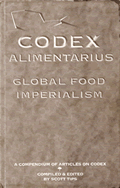Other
Vieira
Articles:
Are Monetary & Banking Crises Inevitable in the Near Future?
"Homeland Security" -- For What and For Whom?
SHADOWS OF NUREMBERG
Dr.
Edwin Vieira, Jr., Ph.D., J.D.
January 14, 2008
NewsWithViews.com
While reading a report in the Washington Post (Sunday, 6 January 2008, p. A10) on Republican Presidential candidates who were campaigning in New Hampshire, I came upon an arresting paragraph that referred to an �exchange [that] capped a six-way argument sparked by host Charlie Gibson, who asked whether the candidates support [President George W.] Bush�s policy of preemptive war. The leading candidates��other than Representative Ron Paul, of course��all embraced the policy.� This enthusiastic near-unanimity led me to ponder the subject in a way that the Washington Post�s reporter (as well as Charlie Gibson) apparently did not.
The terms �preemptive strike� and �preemptive war� are euphemisms. The unvarnished nouns are �attack� and �aggression.� Aggression is a �war crime� under the contemporary Law of Nations. That was the fundamental principle applied in the Nuremberg Trials: namely, that the Nazi leaders had conspired to, and did, seize control of and misuse the government and armed forces of Germany for the purpose of waging unlawful wars�wars of aggression�against Germany�s neighbors. Indeed, the extensive documentary history of the Nazis� crimes published by the United States Government Printing Office in the late 1940s was entitled simply, and accurately, Nazi Conspiracy and Aggression. Nazi aggression did not commence only with actual hostilities, either. The very first document that evidenced the Nazis� aggression against Russia was the plan�repeat, plan�entitled Aufbau Ost for movement of the German Heer and Luftwaffe into portions of occupied Poland, merely preparatory to invasion.
A common complaint is that the Nuremberg Trials were examples of ex post facto law, that they were hypocritical (inasmuch as one of the brace of original aggressors in World War II, Stalin�s Russia, sat in judgment of her erstwhile ally, Hitler�s Germany), that the prosecutorial and juridical procedures employed did not comport with due process, and so on. Even if all of these criticisms are to some degree just (and surely at least a few of them are), nonetheless: (i) however novel it may have been in the 1940s, the Nuremberg principle that aggression is a �war crime� is not novel today, perforce of the results of the Nuremberg Trials themselves; and (ii) having been applied by the United States in those trials, to the point of hanging various defendants on the strength of such charges, the principle remains applicable in equity to wayward public officials in the United States today.
The concept that a war of aggression is a �war crime� was not something first introduced into the Law of Nations at Nuremberg in the late 1940s, either. Long before Nuremberg, it was widely accepted that launching a war was unjustifiable: (i) in the absence of an actual attack on, or an imminent danger thereof to, the nation engaging in hostilities; (ii) simply to weaken another country militarily, or to prevent her from becoming a possible threat in the future; or (iii) to impose on another country a form of government that was supposedly more benign or progressive than the one she happened to have. See, e.g., Hugo Grotius, The Law of War and Peace (1646), Book II, Chapter I, �� IV, V, XVII; Chapter XXII, �� V, XXII.
Moreover, even if the concept that a war of aggression is a �war crime� had never been part of the Law of Nations, it has always been part of the supreme law of the United States: For �the genius and character of our institutions are peaceful, and the power to declare war was not conferred upon Congress for the purposes of aggression and aggrandizement.� Fleming v. Page, 50 U.S. (9 Howard) 603, 614 (1850). And �[t]he Constitution * * * invests the President, as Commander in Chief, with the power to wage war which Congress has declared.� Ex parte Quirin, 317 U.S. 1, 26 (1942). So, if Congress cannot constitutionally declare a war of aggression, the President cannot wage one�let alone wage such a war without any Congressional declaration at all. And if Congress does purport to declare (or otherwise license) a war of aggression, and the President does purport to wage one, everyone involved is guilty of a violation of his �Oath or Affirmation, to support th[e] Constitution.� Article VI, cl. 2. Therefore, all of their actions are illegal�and if perpetrated other than under the proven influence of insanity or other equivalent mental disease or defect, are �war crimes.�
What, then, had I and thousands of others read in the Washington Post? That all but one of the leading Republican candidates for President of the United States possibly are assuring the country that they will behave as �war criminals� if elected President, by continuing and even extending the Bush regime�s policy of �preemptive war�! I say �possibly,� because it may be that these hucksters�or the masterminds of political propaganda and agitation who turn the keys in the back of their heads to wind up their mouths�can produce some convoluted theory as to why the Bush�s regime�s version of �preemptive war� against �Islamo-fascism� throughout the whole world squares with the Constitution. If so, they should be afforded the opportunity in the court of public opinion, if not some other court, to present that exculpatory argument to their fellow Americans.
This explanation not only is mandatory, but also may be more important right now than the candidates� being pressed to detail their positions on the two crucial issues I have emphasized in other commentaries: namely, (i) the on-going self-destruction of this country�s monetary and banking systems, and (ii) the creation of a national police state under color of providing for �homeland security.� For any further �preemptive wars� will strain America�s already overextended public and private financial structures beyond the point of collapse, which will provide an excuse for the Dark Forces in the Disgrace of Columbia to complete and attempt to put into full operation a national police state.
So, Mr. and Mrs. America, see�in just two sentences in the Washington Post�how far your country has sunk into the murky depths of History�s septic tank, when all the leading Republican Presidential �candidates [other than Ron Paul] support Bush�s policy of preemptive war,� and apparently no one in the big media considers this �support,� in and of itself, a complete and absolute disqualification for nomination, let alone election�or even asks what such �support� legally entails, so that the question of disqualification can be put before the general public. Now, precisely what do you intend to do about it?
|
Subscribe to the NewsWithViews Daily News Alerts! |
I, for one, should not wish to conclude that evidence sufficient to condemn Nazis at Nuremberg has been transmogrified into a qualification for electing Republicans (or anyone else) to high office in Washington. I, for one, should hope that this country has not forgotten the most sanguinary lesson the history of the Twentieth Century teaches. I, for one, should hope that some plausible, innocent explanation of what these Republican candidates say they �support� is available. I, for one, should hope that, if such an explanation is not forthcoming from them, then all of the Democratic aspirants for nomination will roundly repudiate �preemptive wars� in no uncertain terms. And I, for one, should hope that, if neither the Republican nor the Democratic �front runners� renounce wars of aggression as instruments of American foreign policy�and even if they do�then Representative Ron Paul will be elected President. But perhaps I am only one, or only one of a few. Too few. If so, Heaven help America from the darkness closing in upon her�because nothing else can.
� 2008 Edwin Vieira, Jr.
- All Rights Reserved
Edwin Vieira, Jr., holds four degrees from Harvard: A.B. (Harvard College), A.M. and Ph.D. (Harvard Graduate School of Arts and Sciences), and J.D. (Harvard Law School).
For more than thirty years he has practiced law, with emphasis on constitutional issues. In the Supreme Court of the United States he successfully argued or briefed the cases leading to the landmark decisions Abood v. Detroit Board of Education, Chicago Teachers Union v. Hudson, and Communications Workers of America v. Beck, which established constitutional and statutory limitations on the uses to which labor unions, in both the private and the public sectors, may apply fees extracted from nonunion workers as a condition of their employment.
He has written numerous monographs and articles in scholarly journals, and lectured throughout the county. His most recent work on money and banking is the two-volume Pieces of Eight: The Monetary Powers and Disabilities of the United States Constitution (2002), the most comprehensive study in existence of American monetary law and history viewed from a constitutional perspective. www.piecesofeight.us
He is also the co-author (under a nom de plume) of the political novel CRA$HMAKER: A Federal Affaire (2000), a not-so-fictional story of an engineered crash of the Federal Reserve System, and the political upheaval it causes. www.crashmaker.com
His latest book is: "How To Dethrone the Imperial Judiciary" ... and Constitutional "Homeland Security," Volume One, The Nation in Arms...
He can be reached at:
13877 Napa Drive
Manassas, Virginia 20112.
E-Mail: Not
available
So, Mr. and Mrs. America, see�in just two sentences in the Washington
Post�how far your country has sunk into the murky depths of History�s
septic tank, when all the leading Republican Presidential �candidates
[other than Ron Paul] support Bush�s policy of preemptive war...














